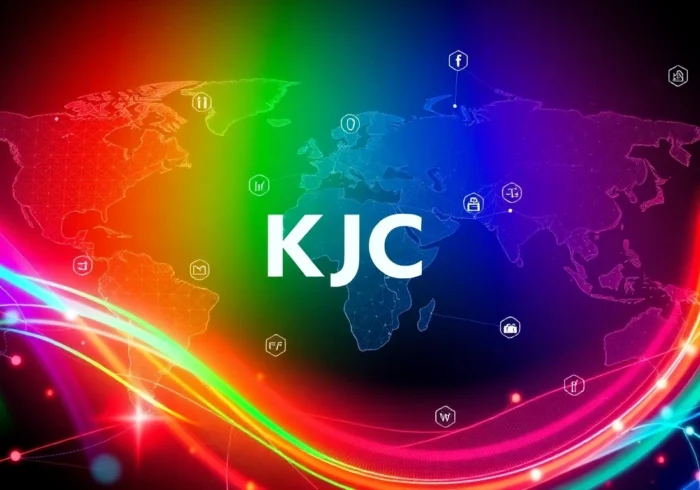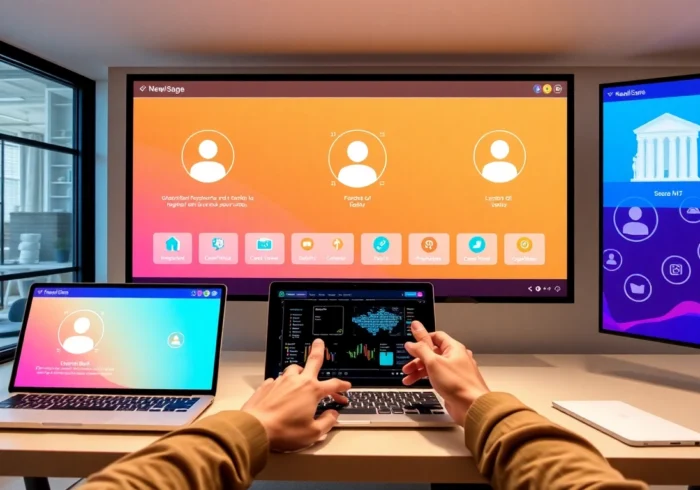Understanding the Landscape of Remote Freelance Jobs in France
Current Market Trends for Remote Freelancers in France
Over recent years, France has experienced a significant transformation in its freelance ecosystem, driven by technological advances and evolving work preferences. The COVID-19 pandemic propelled a shift towards remote work, making remote freelance jobs France increasingly accessible across diverse industries. According to recent data, approximately 40% of active freelancers in France now work remotely, a stark increase compared to pre-pandemic levels. This shift is largely supported by digital infrastructure improvements, flexible work policies, and the rising demand for specialized freelance skills. Tech hubs like Paris, Lyon, Marseille, and Toulouse have become hotspots, attracting talented professionals seeking flexible careers without geographical constraints.
Furthermore, the European Union’s digital transformation initiatives and the rise of freelance platforms have created a vibrant marketplace, enabling freelancers to access international projects while staying within France. This trend not only broadens employment options but also encourages competitive pricing, skill specialization, and higher remuneration packages, especially for tech professionals engaged in high-demand skills such as React, Python, and DevOps technologies.
Key Industries and Sought-After Skills in France’s Freelance Scene
France’s freelance market is characterized by its diversity, with technology, digital marketing, consulting, and creative sectors leading the charge. The tech industry, in particular, has skyrocketed in prominence, driven by startups, large corporations, and government-backed innovation initiatives. As a result, skills in Frontend and Backend development—particularly expertise in frameworks like React, Angular, Vue.js, and programming languages like Python, Java, and TypeScript—are highly sought after.
Other valuable skills include mobile app development (iOS and Android), DevOps & Cloud engineering, Data & Artificial Intelligence, and UX/UI design. For instance, companies are willing to pay top dollar—from €600 to €1200 per day—to freelance experts with proven proficiency in these areas. Supplemental skills such as accessibility consulting (referenced in job listings like référent vuejs / accessibilité) are increasingly important, reflecting a broader drive towards inclusive digital solutions.
Marketing, content creation, and consulting remain also vital, with a growing emphasis on digital transformation strategies, project management, and cybersecurity. The French market favors specialists who combine technical expertise with soft skills like communication, adaptability, and multilingual capabilities to serve international clients effectively.
Pros and Cons of Working Remotely in French Cities
Remote work offers numerous advantages in the French freelance landscape, foremost among them flexibility, reduced commuting time, and access to a broader client pool. Freelancers can choose projects aligned with their expertise, set their own schedules, and work from any location within France or abroad. Major cities like Paris and Lyon provide robust infrastructure, co-working spaces, and vibrant networking communities that foster collaboration and professional growth.
However, there are challenges to remote working as well. Some freelancers report feelings of isolation or difficulty maintaining work-life boundaries, especially without physical proximity to clients or colleagues. Additionally, local administrative regulations, taxation policies, and healthcare funding require careful navigation. For instance, freelancers working in cities like Marseille or Bordeaux might experience varying levels of support and connectivity, influencing overall productivity and satisfaction.
Nevertheless, leveraging co-working spaces and participating in local freelance communities can mitigate these issues. Moreover, remote jobs often come with competitive remuneration packages, reflecting the high demand for specialized skills, especially in technological domains.
Finding High-Paying Remote Freelance Projects in France
Top Platforms and Marketplaces for Remote Freelance Jobs France
Several dedicated freelance platforms facilitate access to lucrative projects in France. JobForFreelancers is one of the leading portals, offering a curated selection of active freelance missions across various technology stacks and cities. Other international platforms like Upwork, Freelancer, and Malt also cater to the French market, providing access to local companies seeking remote talent.
Moreover, niche platforms tailored to specific industries—such as Toptal for software developers or 99designs for designers—enable freelancers to target high-ticket projects. Building profiles on multiple platforms and maintaining an updated portfolio significantly enhances visibility and chances of securing top-paying gigs.
How to Identify Lucrative Freelance Opportunities in France
Success in identifying high-paying jobs hinges on understanding market demand and showcasing specialized skills. Freelancers should regularly monitor job postings that specify premium rates (€600–€1200 daily), flexible durations, and remote options, indicative of lucrative opportunities. Leveraging filters for technology, location, and project scope allows precise targeting.
Networking remains crucial: engaging with local tech meetups, online forums, and industry conferences—both virtual and onsite—can lead to referrals and insider insights. Additionally, understanding regional demand—for example, urban hubs like Paris and Lyon often host higher-value projects—helps tailor career strategies accordingly.
Tips for Negotiating Competitive Rates and Contracts
Negotiation is key to ensuring remuneration aligns with expertise and market standards. Freelancers should conduct thorough research on average rates per skill set and experience level, integrating data from trusted sources like JobForFreelancers’ market insights. It’s prudent to articulate the value delivered—such as prior project success, certifications, or unique skills—when discussing rates.
Setting clear boundaries and detailed contracts covering scope, deadlines, payment terms, and intellectual property rights mitigates disputes. Negotiating value-added services, such as ongoing support or training, can also enhance contract value!
Building a Successful Remote Freelance Career in France
Essential Tools and Resources for Remote Freelancers in France
Remote freelancers need a suite of tools to streamline workflow, collaboration, and client management. Platforms like Slack and Zoom facilitate communication, while project management solutions such as Asana, Jira, or Trello keep tasks organized. For invoicing and tax compliance, software like Debitoor or QuickBooks simplifies financial administration.
Additionally, continued learning is vital — online courses from platforms like Coursera, Udemy, and LinkedIn Learning help freelancers stay ahead of technological trends and deepen expertise. Subscriptions to industry newsletters, forums, and local tech communities foster ongoing skill enhancement and networking opportunities.
Networking and Community-Building in France’s Freelance Ecosystem
Active community involvement amplifies success. Local meetups, industry events, and online groups (such as French tech forums or LinkedIn communities) facilitate connections with clients and peers. Participating in collaborative projects or hackathons can showcase skills and expand professional network.
Moreover, establishing a personal brand through a professional website, social media, and thought leadership articles increases visibility among prospective clients. French cities are home to numerous coworking spaces and innovation hubs—taking advantage of these provides invaluable face-to-face interactions and mentorship.
Strategies for Maintaining Long-Term Client Relationships
Repeat business and referrals are cornerstones of sustainable freelancing. Regular communication, delivering high-quality work, and exceeding client expectations foster loyalty. Implementing feedback loops and offering value-added services—such as post-project support—further deepen relationships.
In addition, maintaining a consistent online presence and sharing successful project case studies can attract new clients by demonstrating reputable expertise. Building trust over time positions freelancers as indispensable partners rather than one-off vendors.
Legal, Tax, and Administrative Considerations for Freelancers in France
Registering as a Freelancer and Legal Compliance in France
Legal registration is a fundamental step. France offers several statuses for freelancers, notably the auto-entrepreneur (micro-entrepreneur) status, which simplifies taxation and administrative procedures. Alternatively, some opt for the Profession Libérale or Société à Responsabilité Limitée (SARL) structures for more complex needs.
Ensuring compliance involves registering with the URSSAF for social security contributions, obtaining necessary permits, and adhering to local regulations. Consulting legal experts or specialized platforms helps navigate registration accurately, avoiding potential penalties.
Managing Taxes and Invoicing for Remote Freelance Work
Tax management is crucial for profitability. Freelancers must keep detailed records of income and expenses, issue compliant invoices, and understand VAT obligations if applicable. France’s tax system mandates quarterly or annual declarations, with rates varying based on the business structure and income level.
Automating invoicing and bookkeeping through software streamlines compliance. Engaging a local accountant familiar with freelance taxation can optimize deductions, ensure timely filings, and help plan financial strategies for growth.
Health Insurance, Retirement, and Social Protections for Freelancers
Freelancers in France are responsible for their health coverage and social security contributions. The social protection system covers health, retirement, and family benefits, but requires active enrollment and consistent contribution payments.
Options include voluntary schemes through URSSAF or supplementary health insurance plans. Building a comprehensive social safety net ensures freelancers are protected against unforeseen circumstances, enabling peace of mind to focus on professional growth.
Future Outlook and Growth Opportunities for Remote Freelancers in France
Emerging Technologies and Industries to Watch
The technological landscape in France continues to evolve, with trends such as Artificial Intelligence, Blockchain, and Cybersecurity gaining momentum. Government initiatives supporting digital innovation—like the French Tech Visa—are attracting international talent and investment.
Freelancers positioning themselves in these emerging fields will benefit from high demand and premium rates. For example, expertise in Data Science or Cloud Infrastructure offers substantial growth potential, aligning with national priorities for technological sovereignty and digital resilience.
Upgrading Skills to Stay Competitive in France’s Freelance Market
Continuous learning is essential. Staying current with the latest frameworks, programming languages, and industry standards ensures relevance. Specialized certifications, such as AWS, Scrum, or Certified Data Professional, enhance credibility and marketability.
Participating in online courses, webinars, and industry conferences keeps freelancers ahead of trends. Additionally, cultural and language skills—especially proficiency in French—can open doors to more local projects and client relationships, giving professionals a competitive edge.
Predicted Trends for Remote Freelance Jobs in France Over the Next Decade
Looking ahead, the French freelance market is poised for sustained growth, fueled by increasing digitization, remote-first policies, and a resilient startup ecosystem. The rise of gig economy platforms tailored for tech professionals, coupled with governmental support for innovation, will create a favorable environment for freelancers.
Automation and AI integration will reshape project workflows, emphasizing skills in machine learning, data engineering, and software automation. Additionally, a growing emphasis on diversity and inclusion will influence project scope, fostering more accessible and inclusive digital solutions.
Ultimately, freelancers who adapt to technological changes, deepen their specialization, and cultivate strong networks will thrive in France’s evolving remote work landscape over the coming decade.



